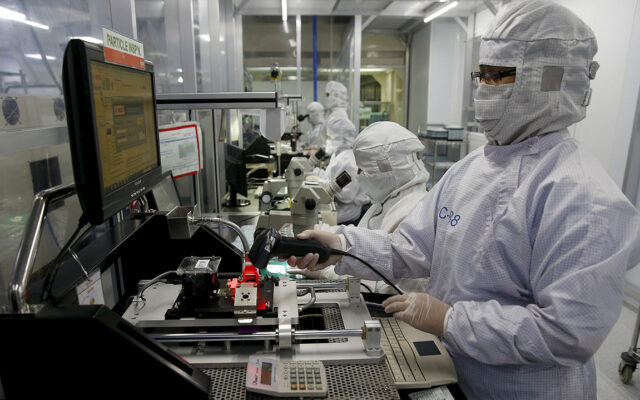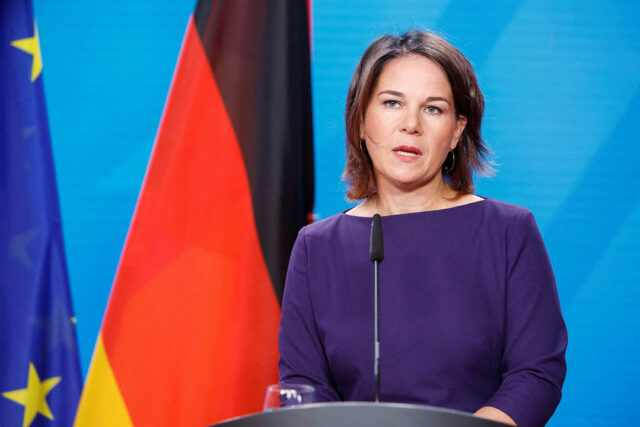An ironic piece of news that came out last Christmas season was that the Philippines was second only to the United States in terms of the viewing of pornography. This was according to the latest data released by Pornhub, the online pornography page. But the news that really made a lot of people giggle was that Filipinas seem to be the only females on Earth that outdid their national male counterparts in relation to watching porn.
Thus, from Pornhub: “Female visitors contributed to over half the viewers in one country this year, the Philippines. They had 58% female viewers, +5% since last year, and 42% male. Colombia was split evenly, with 50% being female and 50% being male (a male increase of +1% since 2022). The rest of the countries had a higher percentage of men viewing Pornhub.”
This is clearly not something to be proud about.
Enough studies have been made that practically make it conclusive that where the women go so does society. It’s bad enough for men to be watching porn, but high female porn viewership doesn’t bode well for the Philippines, particularly if high TikTok usage is added to the mix. Various research already demonstrated TikTok’s likely ability to damage mental health and “right now, 44.4 million Filipinos (with a staggering 67.9% of Filipinos aged between 16-64) are potential addicts” (see this column’s piece, “TikTok is not only annoying. It’s much worse than that,” BusinessWorld, February 2023).
And, of course, there is also OnlyFans.
So, if the Philippines has “58% female” Pornhub viewers, would it then be a coincidence that 58.1% of our newborn babies (as per 2022 PSA data) are illegitimate? This is compounded further by the fact that 20% of Philippine marriages will be annulled, with 61% of those annulments filed by women. The year 2020 alone saw nearly 1 million married women divorced/separated/annulled. All this without a Philippine divorce law. Meanwhile, 15% of the population are now in live-in arrangements, up by 9% from 2015 (see Philippine Star, February 2023).
Considering further that our youths are naturally nurtured by mothers in their early stages, would it then be surprising that a 2013 survey (DRDF-UPPI) found that 57% of our youth watch pornography, with “one in 10 ha[ving] recorded him/herself having sexual activity; four in 100 have had sex with someone they met online or through text messages; six in 100 have engaged in phone sex; one in four has sent or received sex videos through mobile phone or internet.” Those numbers, bad enough as they are, have surely unfortunately risen.
The proliferation of single-parent families is disastrous, particularly for children. As US President Barack Obama famously declared: “children who grow up without a father are five times more likely to live in poverty and commit crime; nine times more likely to drop out of schools and 20 times more likely to end up in prison. They are more likely to have behavioral problems, or run away from home or become teenage parents themselves. And the foundations of our community are weaker because of it.” Social bonds are undone, economic productivity diminishes, crimes go up, national security is made effete.
As regards our youth, Pornhub’s demographic data is instructive: “Most viewers are between the ages of 18 and 34. This makes up over half the entire viewership. The 18-24 age bracket made up 27% of all traffic and the 25-34 age bracket made up 26% of all traffic. After that, the numbers decrease. The 35 to 44 age bracket made up 19% of all traffic and the 45 to 54 age bracket made up 13%.
“Proportionally by the top 20 countries, the 18 to 24 age bracket was highest in the Philippines, Mexico, Germany, Brazil, and Egypt, which had the highest amount at 41% of their entire traffic. They were lowest in Japan, Spain, and Sweden. The 25 to 34 bracket was highest in the Philippines, Germany, and Egypt” (emphasis supplied).
Even more depressingly, the top Filipino porn search in 2022 included “pinay gangbang” (so much for female empowerment). In 2023 it was for “pinays,” gay “pinoys,” gay anime, and something called “male whimpering.”
Porn is utterly damaging to one’s health, particularly mental health. As with TikTok, indulging in porn has been shown to result in brain patterns reconfigured as to negatively affect relationships, cause addiction, anxiety, depression, and stress (see “Compulsive internet pornography use and mental health: A cross-sectional study in a sample of university students in the United States,” Camilleri, et.al., 2021; also “Should compulsive sexual behavior be considered an addiction?,” Kraus, et.al., 2016, and “Neurobiological Basis of Hypersexuality,” Kühn and Gallinat, 2016).
If ever there is a weakening of society, it can be pinpointed to the weakening of the family and the weakening of the family has a lot to do with the character and virtue (or lack of such) of the parents. And porn is obviously a damaging factor to individuals that eventually make up a marriage and a family.
Jemy Gatdula read international law at the University of Cambridge and is a Philippine Judicial Academy lecturer for constitutional philosophy and jurisprudence.
https://www.facebook.com/jigatdula/
Twitter @jemygatdula















